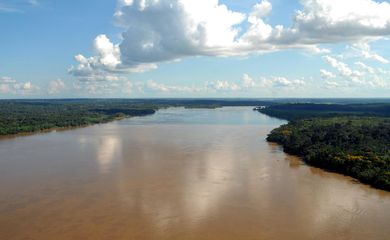Federal Police clamp down on illegal mining in indigenous reserves




Indigenous lands belong to the State, and water and mineral resources in these areas can only be exploited with official permission
Federal Police officers from the states of Roraima, Rondônia, São Paulo, Amazonas, and Pará were marshaled Thursday (May 7) to serve 313 warrants against suspects of clandestine gold and gemstone mining on indigenous lands. The operation was chiefly targeted at the Yanomami indigenous reserve in Roraima.
About 150 Federal Police men are involved, assisted by officers of the Brazilian Institute for the Environment and Renewable Natural Resources, IBAMA. The operation was dubbed Warari Koxi, in a reference to a Yanomami expression used for criticizing the destruction or harmful interference with a healthy environment.
The illegal scheme involved business leaders, public servants, goldminers, jewelers, and aircraft pilots. Together they opened mining sites for gold, gemstones, and other minerals within indigenous reserves, particularly in northern Roraima. If proven involved, the suspects will be charged with illegal extraction of natural resources, criminal conspiracy, misappropriation of national resources, receipt of stolen property, bribery, breach of public service confidentiality, smuggling, money laundering, and others.
Indigenous lands belong to the State, and water and mineral resources in these areas can only be exploited with official permission. Investigators estimate that the group obtained a monthly average 160 kilograms of gold through illegal mining. Besides the environmental damage, the illegal activity may have cost the Treasury as much as $5.6 million. Police also suspects part of the gold was used for money laundering.
The investigators were stunned by the rapid destruction of the mining areas. “[It's amazing] how devastating the mining activity has been to the ecosystem, polluting rivers with mercury and other heavy metals, destroying the wildlifeand the Yanomami culture.”
“There are many problems in all indigenous areas. There's malaria, diarrhea, and other diseases. In the Yanomami reserve, one such problem is mining on site, which opens the door to intruders and goldminers who pollute our rivers with mercury,” noted the Public Policy Coordinator for the Hutukara Yanomami Association, Dário Vitório Kopenawa.
Translated by Mayra Borges
Fonte: Federal Police clamp down on illegal mining in indigenous reserves




